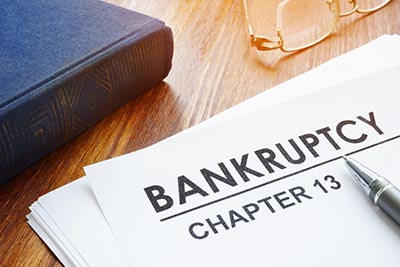
You may be in a position where you have to decide which bills to pay each month or you may see that you will be delinquent on your credit cards, so you may be considering a Chapter 13 Bankruptcy Virginia.
One method of getting out of your debt burden is by filing for bankruptcy. The purpose of this article is to provide information about Chapter 7 and Chapter 13 bankruptcy, and why it may be the best choice for you to get out of debt. In Virginia, there were 13,313 Chapter 7 filings and 9,507 Chapter 13 filings during a 12-month period ending June 30, 2019.
Continue reading this article to learn the following;
- Virginia Chapter 7 bankruptcy vs. Virginia Chapter 13 bankruptcy
- Virginia Bankruptcy Means Testing
- Chapter 13 Plan Payments
- Virginia Bankruptcy Exemptions
- Virginia Bankruptcy Courts
- Bankruptcy Trustees in Virginia
- Deciding Whether to File Chapter 13 or Chapter 7 Bankruptcy
Virginia bankruptcy cases-Chapter 13 vs. Chapter 7
The most common two types of consumer bankruptcies are the Chapter 7 bankruptcy plan and Chapter 13 Bankruptcy plan.
Chapter 7 bankruptcy: This type of debt is also called liquidation bankruptcy due to the way it works. It is a type of bankruptcy that is created for individuals that can afford to pay back their debt after deducting living expenses. Before you can qualify for liquidation debt, you must meet some criteria. One of those criteria is that your average income should be less than the average income in your state.
Chapter 13 bankruptcy: This type of bankruptcy plan gives room for debtors to re-organize their debt to a more conducive timeframe. Chapter 13 bankruptcy helps you to;
- Catch up on your taxes
- Reduce your car payments
- Prevent foreclosure and helps you to meet up with your mortgage payment schedule
- Protect your property from being taken over by the court or your debtors
- Stops repossessions and wage garnishments
- Reduce your unsecured debt
A feature of chapter 13 bankruptcy is that it commits you to a repayment schedule that is usually between three to five years. During this period, you’re not allowed to borrow money or sell any of your major assets, unless such actions are approved by the bankruptcy court. Chapter 13 bankruptcy helps you to pay off your debt without the fear of losing your house or any other asset. A Chapter 13 calculator can help you estimate your Chapter 13 monthly payment.
Virginia means testing
The means test will compare your average income in 6 months, with the average income of Virginia residents. If your average income is below the average income in Virginia, then you may qualify for a Chapter 7 bankruptcy discharge. Virginia changes the data it uses to calculate means income regularly; as such, you should check that you’re using a current figure. Here is the most recent figure for calculating the means test in Virginia.
Chapter 13 repayment plan Virginia
Many factors are considered when calculating whether you qualify for a Chapter 7 or calculating a chapter 13 plan payment. Those factors include your disposable income, which is the part of your income that remains after paying your necessary expenses. Another factor is the level of unsecured debt that you owe. Also, your nonexempt property can also affect what you pay. The technicalities of filing a Chapter 13 bankruptcy can be too hard for a first-timer to understand. As such, it is better to hire a Chapter 13 bankruptcy attorney to help with the process.
Virginia bankruptcy exemptions
Virginia bankruptcy exemption lets debtors claim a specific amount of equity in the property exempt from the bankruptcy case. The exempt equity will not be used when calculating your payment. While filing for bankruptcy, you can use the Virginia bankruptcy exemptions.
You can access Virginia bankruptcy exemptions in Virginia Statutes. To have full knowledge of the merits and demerits of the two exemptions, you should speak to a bankruptcy attorney for a better explanation.
Bankruptcy courts in Virginia
Virginia has two bankruptcy districts— Western and Eastern. To find the right court to file your bankruptcy case, check through the two districts of Virginia, the Eastern District and the Western District.
Bankruptcy trustees in Virginia
The bankruptcy court will assign you a bankruptcy trustee when you file for a chapter 13 bankruptcy. The trustee has to receive monthly payments from a debtor and distributes those payments to the creditors. There are three Chapter 13 bankruptcy trustees in Virginia, and you’ll be assigned one of them.
Should I file a Chapter 13 bankruptcy case?
Hopefully, you will have a better understanding of filing for bankruptcy in Virginia. Ultimately, the choice is yours. But, having all the information can help you make a better-informed decision, which will lead to the best result possible. From the cost of bankruptcy in Virginia, to the amount of time it will take, all factors play a part in your decision. Take your time, and reach out if you need someone to talk to about your options.
Story by David Te










